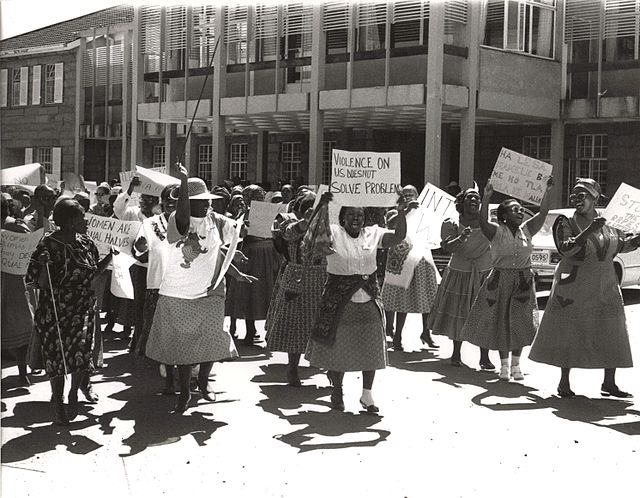It is thought that multiple ethnic groups in South Africa have long-standing beliefs concerning gender roles, and most are based on the premise that women in South Africa are less important, or less deserving of power, than men. Some view African traditional social organizations as male centered and male dominated. One prevailing caricature of Afrikaner religious beliefs includes a strong emphasis on the theoretically biblically based notion that women's contributions to society should normally be approved by, or be on behalf of, men. Claims are even made of modern sexism and Christianity being introduced into South Africa by the ancestors of the Afrikaner diaspora.
Mpondo woman in South Africa
Women police in Cape Town, 2010
School girls in Cape Town
The Sonke Gender Justice programme in South Africa aims to transform societal attitudes towards sexual violence
Feminism in South Africa concerns the organised efforts to improve the rights of the girls and women of South Africa. These efforts are largely linked to issues of feminism and gender equality on one hand, and racial equality and the political freedoms of African and other non-White South African ethnic groups on the other. Early feminist efforts concerned the suffrage of White women, allowing them to vote in elections beginning from 1930s, and significant activism in the 1950s to demand equal pay of men and women. The 1980s were a major turning point in the advancement of South African women, and in 1994, following the end of the apartheid regime, the status of women was bolstered by changes to the country's constitution. Since the end of apartheid, South African feminism is a contribution associated with the liberation and democratization of the country, however, the movement still struggles with the embedded conservative and patriarchal views within some segments of South African society.

South Africa celebrates National Women's Day on August 9th.





